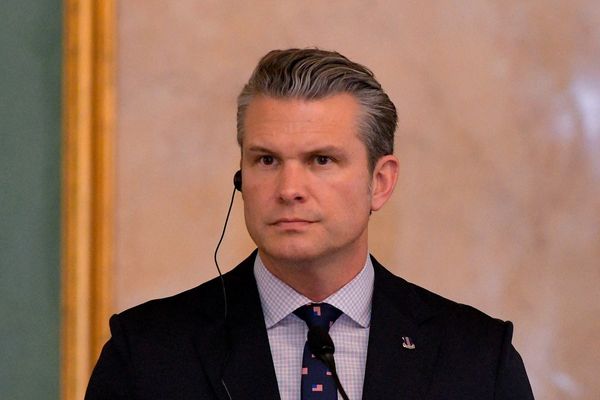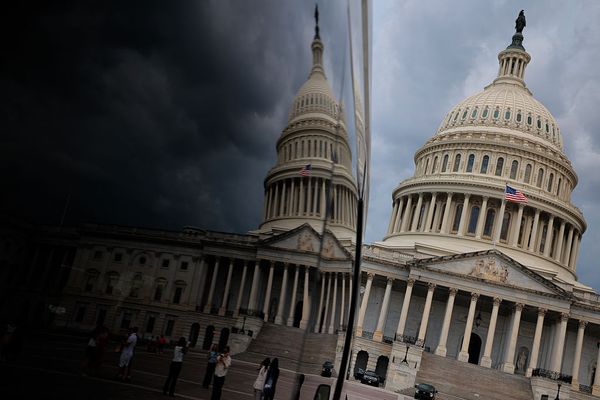
UK wage growth picked up in January as job vacancies hit a new record high, but pay failed to keep pace with the highest inflation rate for three decades.
The Office for National Statistics said the annual growth rate for average total pay, including bonuses, increased to 4.3% in the three months to December, up from a rate of 4.2% in the three months to November.
The rate was boosted by bonus payments in December, with the strongest pay growth for workers in finance, insurance and the property industry. Regular wage growth excluding bonuses eased by 0.1 percentage points to an annual rate of 3.7%.
The performance beat City economists’ expectations for total wage growth of 3.8% and a rise of 3.6% for regular pay.
However, taking into account inflation – which is at the highest level since the early 1990s amid a dramatic increase in household energy costs and wider cost of living crisis – real pay fell on the year by 0.1%. Wages excluding bonuses fell by 0.8%.
The figures highlight how rates of pay growth are stronger in some sectors of the economy than others, with annual wage increases of 4.6% on average compared with just 2.9% for public sector staff.
Suggesting that key workers on the pandemic frontline could bear the brunt of Britain’s cost of living crisis while bankers are insulated, pay rose by 7% for workers in financial services and 14% in the property sector, significantly above inflation. Pay in education rose by just 0.4%, the lowest since 2013, while wages in health and social work rose by 4.5%.
The number of job vacancies across the UK increased in January to a fresh record high of almost 1.3m, after two consecutive monthly falls when some employers paused their hiring plans amid increased uncertainty over the economic outlook due to Omicron.
In a sign of rising confidence among firms, the number of employees on UK company payrolls increased by 108,000 in January to a record 29.5 million. The unemployment rate for the three months to December fell by 0.2 percentage points to 4.1%, although remains 0.1 percentage points higher than before the coronavirus pandemic.
Rishi Sunak said the latest figures showed the jobs market was healthier than most could have hoped for. “We’re continuing to help more people into work, and are providing support for the cost of living worth over £20bn across this financial year and next,” the chancellor said.
However, analysts said the strong headline figures masked significant underlying challenges for workers and the British economy as employers struggle to find staff and inflation heaps pressure on households and businesses.
Suren Thiru, the head of economics at the British Chambers of Commerce, said there was limited scope for companies to increase pay despite chronic staff shortages. “While Omicron is having little impact on employment, the squeeze on firms’ finances from high inflation, soaring energy bills and the looming national insurance hike is likely to weaken job creation and further restrain pay growth in the coming months.”
In a sign of the pressure on households, the ONS said inflation-adjusted regular pay, excluding bonuses, plunged in the month of December by 1.2%, the biggest decline for eight years.
Frances O’Grady, the general secretary of the TUC, said: “Working families need financial security. But they face a perfect cost-of-living storm. Pay packets are plummeting in value as bills and prices sky-rocket.”
The figures come after the governor of the Bank of England urged employers to show restraint when setting pay this year to prevent high rates of inflation from becoming embedded after record energy prices subside. Threadneedle Street forecasts inflation will increase from the current rate of 5.4% to a peak of 7.25% by April, driven by a surge in household energy costs amid Britain’s cost of living squeeze.
Hannah Slaughter, a senior economist at the Resolution Foundation, said there were “nascent signs” that a rebound in hiring activity at the start of 2022 could be starting to feed through into stronger pay growth. Figures from HM Revenue and Customs showed median wages rose by 6.3% in January compared with a year earlier before taking account of inflation.
However, questions remain over the amount of bargaining power workers have to demand higher wages, with a risk that Britain’s squeeze on living standards could surpass a 2.7% fall in real-terms pay experienced in 1991.
“While some policymakers are rightly worried about accelerating nominal wages boosting UK inflation, they should also be worried about Britain simultaneously experiencing the tightest real wage squeeze in generations. To square this circle, the UK needs faster productivity growth,” she said.







